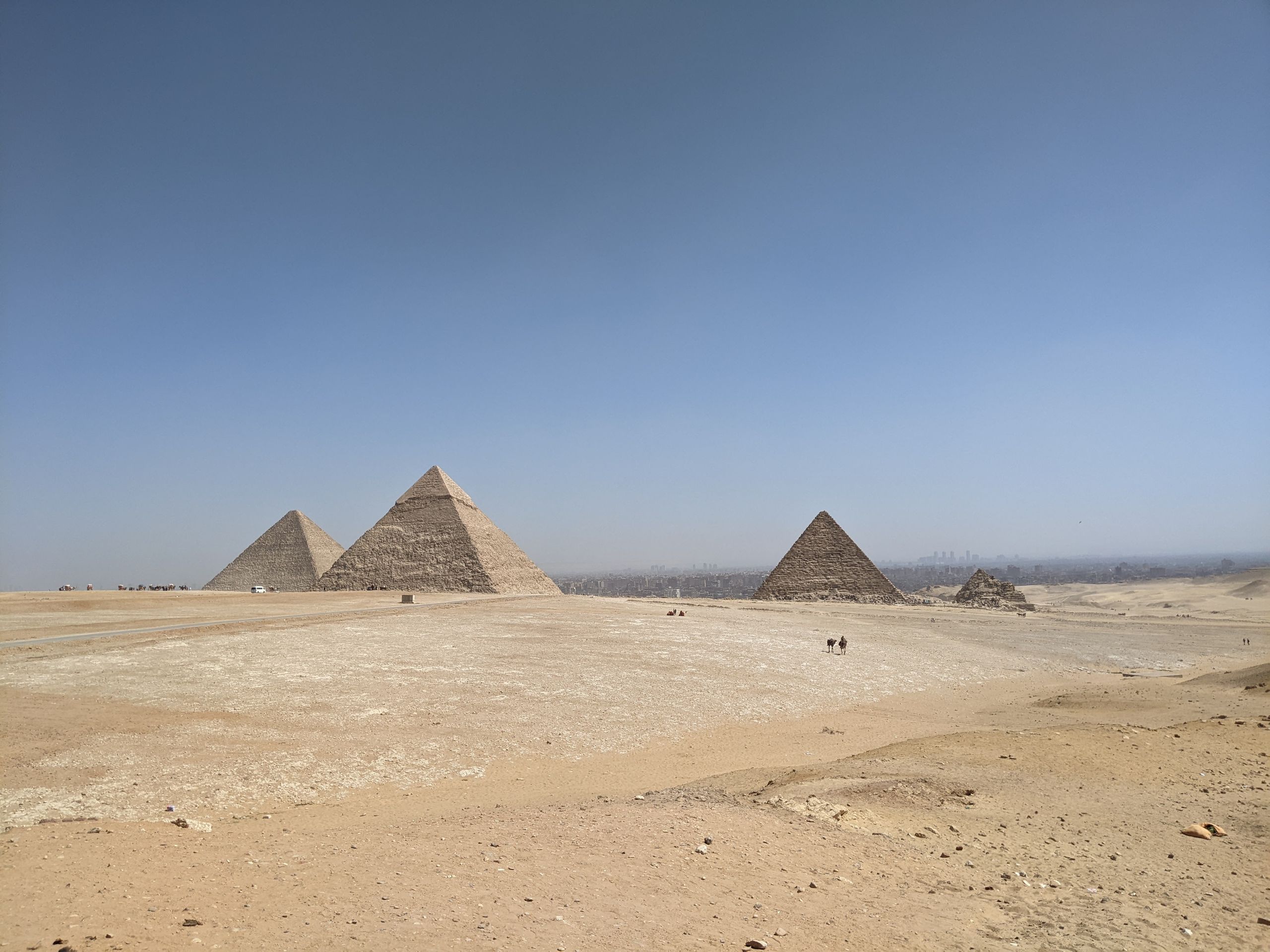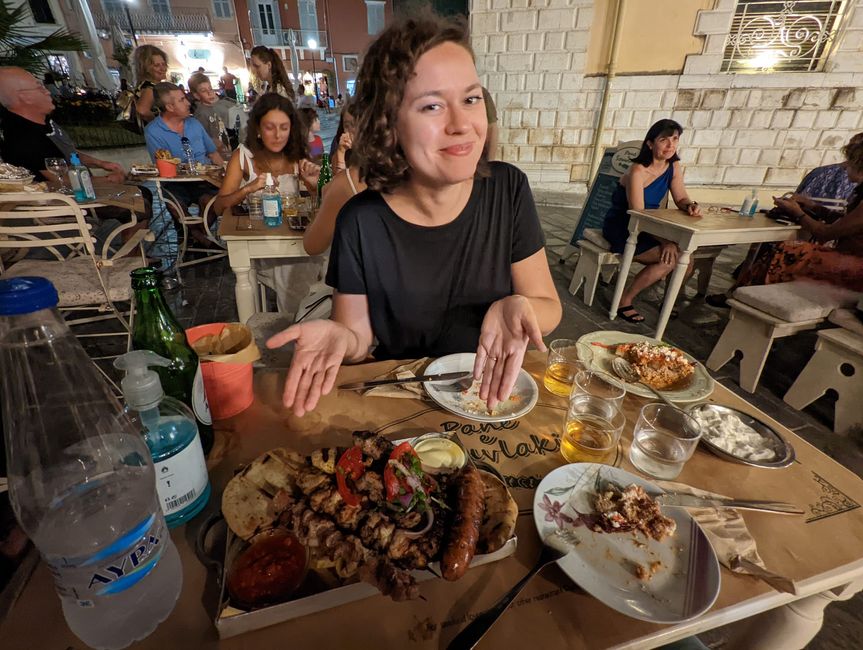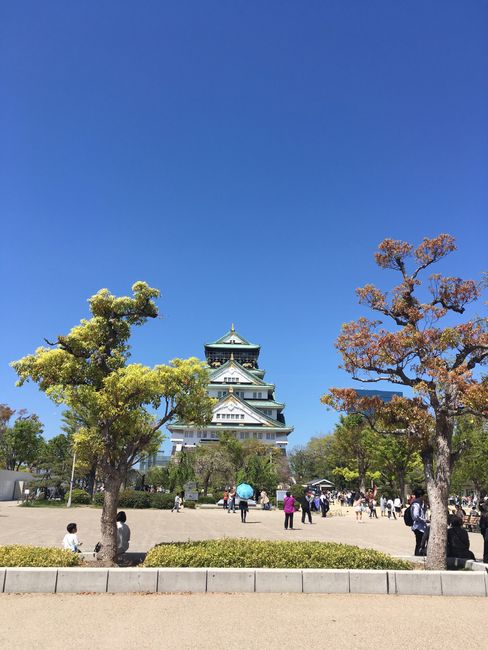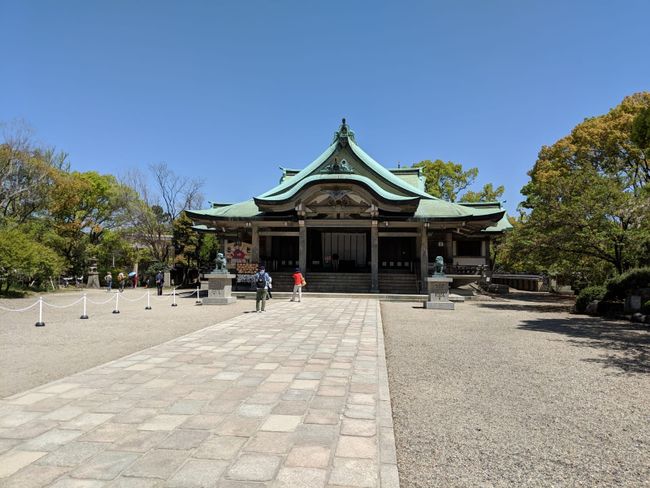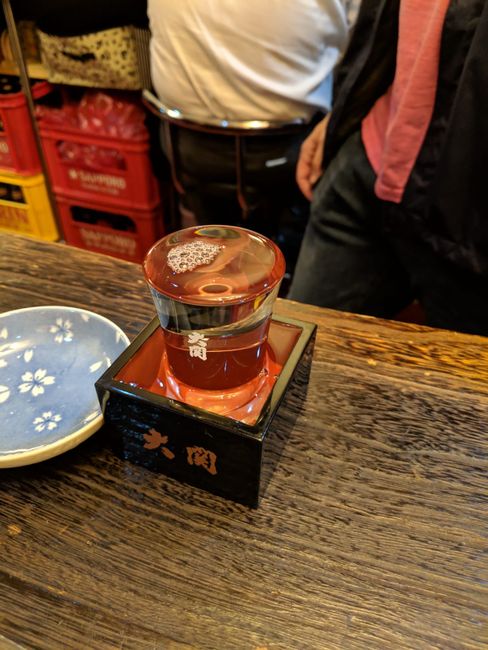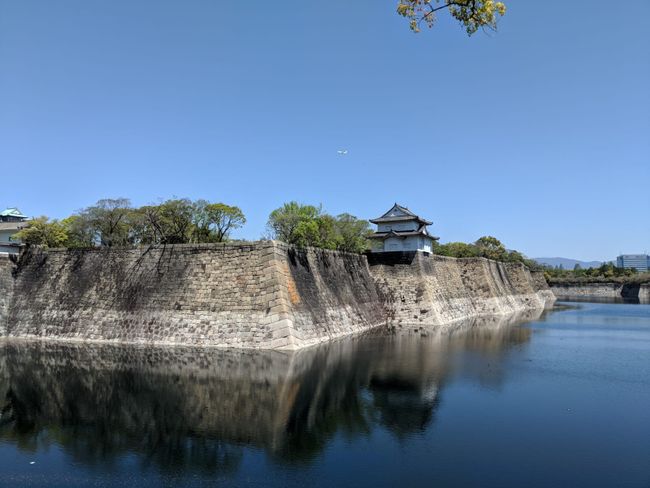Osaka during the day and night
Published: 25.04.2019
Subscribe to Newsletter
We start the day in Osaka by sleeping in and then visiting Osaka Castle. On our last trip to Japan, we somehow skipped all the castles, so it's about time we appreciate this historic building. The most interesting part of the castle is its exterior: you can best admire it from the surrounding park. I'm sure the castle and the park are even more beautiful during cherry blossom season. If you've only seen European castles so far, you'll be surprised by the lightness of Japanese castles. I'm not quite sure if these buildings really had a defensive function, but I can't imagine they could withstand an attack from enemy armies.
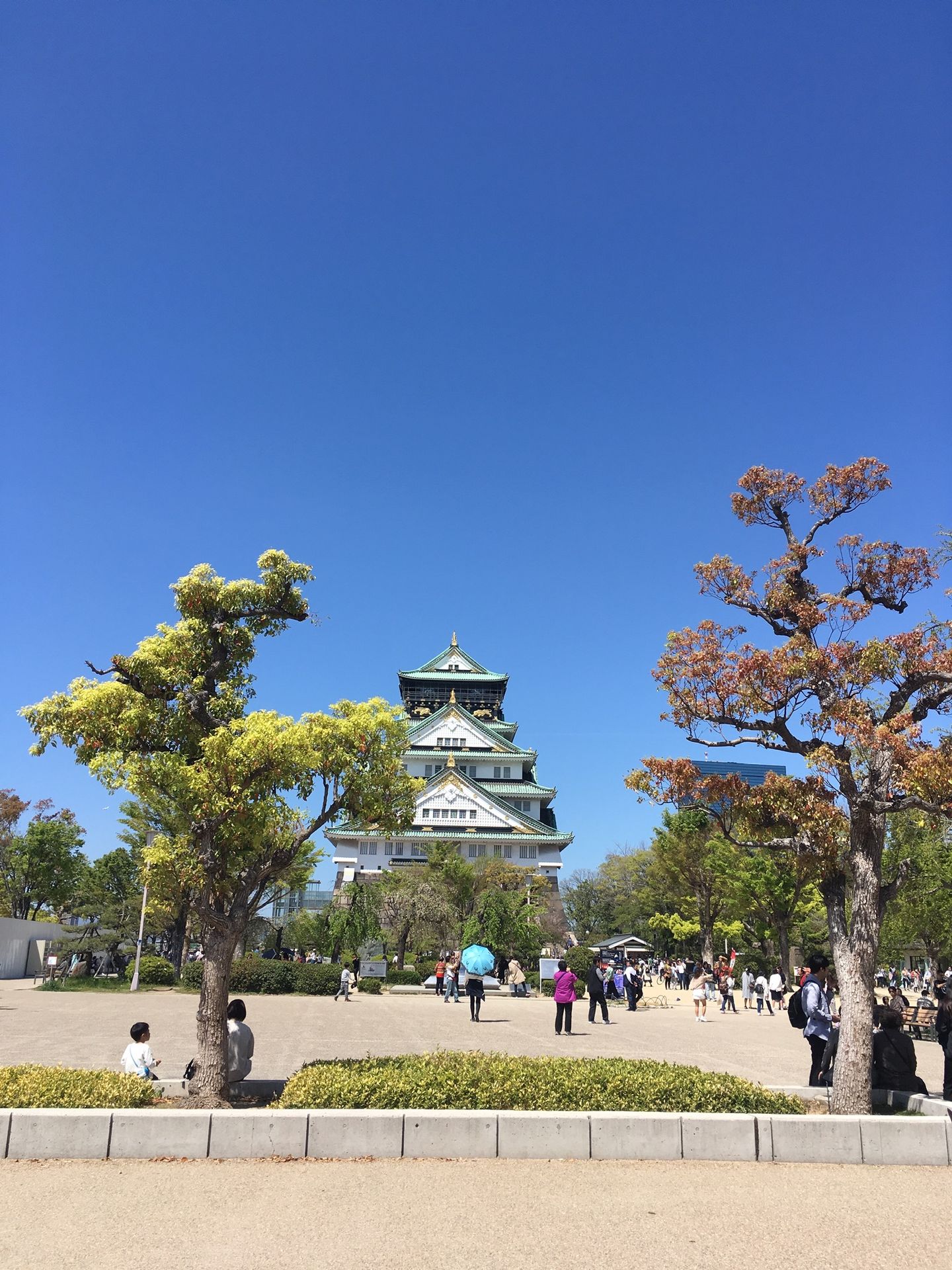
Osaka Castle survived many historical events, but it couldn't withstand nature: almost the entire castle complex burned down after a lightning strike; fires were always the biggest threat to wooden buildings (maybe also the occasional revolt), so the buildings had to be rebuilt time and time again. World War II wasn't helpful either, so many "historical" buildings date back to around 1950. Osaka Castle is one of them. It has been beautifully renovated, but the exhibition inside the building is less interesting. Only people who are well-versed and interested in Japanese history can make sense of the explanations about the Tokugawas, Nobunagas, Toyotomis, and their respective conspiracies, love affairs, battles, and (self-)assassinations. The view from the castle is interesting, but there are certainly better ways to admire Osaka from above.
We're already heading back to our accommodation as we're getting ready for the evening: we've booked an izakaya tour through Kyobashi.
There's no good translation for the word izakaya, but they're essentially like pubs: relaxed places to drink and eat snacks. Izakayas are often tiny, full of locals, and the menu is mostly handwritten in Japanese. That's why it takes some courage to enter such a place. We're doing it with the help of Aki-san, who lived in America for several years and has now returned to her hometown Osaka. She has been offering the izakaya tour for 6 months. It was really fun! We went to 3 different izakayas, and Aki encouraged (well, forced) us to order drinks in Japanese and taught us practical vocabulary for such a visit. The snacks were based on Aki's recommendations, which unfortunately consisted of 85% squid and octopus, but they were otherwise very tasty. And perfect for washing down with a beer or sake. :) Unfortunately, we forgot to take photos, except for the sake, which Stef cleverly took a picture of.

A round glass is placed in the square wooden cup. The glass is filled until it overflows into the wooden cup, which is also filled almost to the top. Pouring sake in this way is said to symbolize abundance, especially in terms of hospitality and prosperity.
After three hours, the tour is over and suddenly you have to run: it's only 11 p.m. on Saturday night, but the metro doesn't run much longer, and otherwise you can only get home by (expensive) taxi. But we still have to buy some snacks at the convenience store: the ratio of alcohol to snacks wasn't very balanced, but maybe that's what makes izakayas so popular...
Subscribe to Newsletter
Answer
